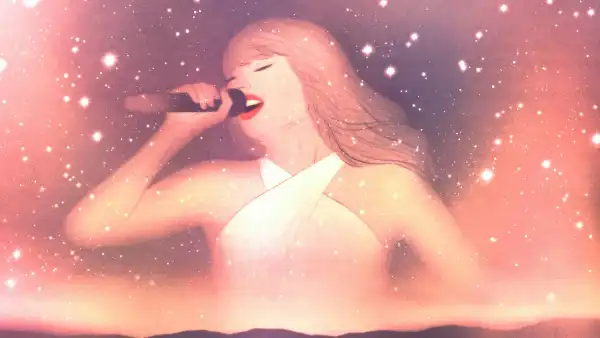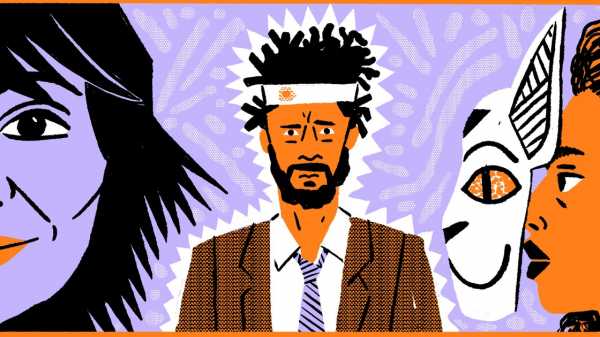
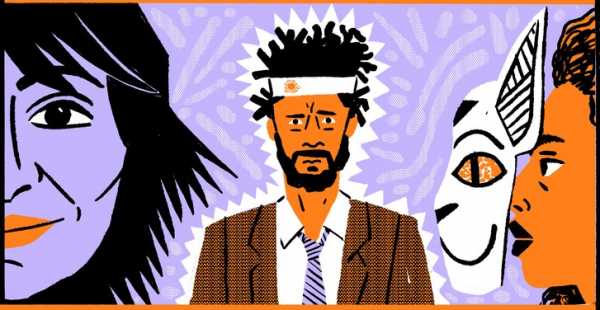
Illustration by Cari Vander Yacht
The word “resistance” has been central to political, intellectual, and, for that matter, moral life in the past two years, as policies of a sadistic fury and bullying remarks to match have issued from the seat of American power. Resistance takes many forms, including cinematic ones. But the cinema of resistance isn’t necessarily overtly political (though it may well be that, too—as in many of this year’s best films). Movies of resistance offer, foremost, aesthetic resistance: they resist the making of images and the telling of stories that take their own power for granted. They resist clichés of audiovisual thought, which are as desensitizing to the individual mind as they are deluding in the forum of social debate. They challenge received ideas of what stories and images are, and challenge their makers’ own artistic practices; they expand viewers’ imaginations, deepen and sensitize their emotional responses, and create forms of perception that go far beyond the events depicted in the movies to become enduring experiences in themselves, enduring incarnations of their time.
By contrast, in the rush to be of the moment, in the self-conscious and vain exertion to capture the times, filmmakers often make movies as disposable as an op-ed, a commentary that converges with the averages and approximations of prevailing attitudes rather than the intimate specificity of experience. It’s easy for filmmakers to treat political matters as cynically as they might approach any dramatic subject—perhaps even easier, because they’re easier to tailor to the expectations of a targeted audience. Many of the year’s most ostensibly “political” films have earned critical praise, they’ll likely get awards, and they can be counted on to have as little effect on current-day politics as they’ll have on the history of cinema.
2018 in Review
New Yorker writers reflect on the year’s best.
This is all to say that 2018 has been a banner year for movies, but you’d never know it from a trip to a local multiplex—or from a glimpse at the Oscarizables. The gap between what’s good and what’s widely available in theatres—between the cinema of resistance and the cinema of consensus—is wider than ever. I’ve played a little game with my list this year: after composing it, I rummaged through the box-office numbers to see where each of the films ranked among the six hundred and eighty-two films released to date this year, how much money each took in, and how many theatres each one was released in. Three of the year’s best were shown in more than a thousand theatres (and one on the list is the biggest box-office hit of the year) but the others had releases that ran from limited to virtually nonexistent. Some of the best movies in the year don’t register at all in terms of ticket sales; they may have played at only one venue for a week, and reported no numbers for their brief runs. Though this came as a shock, it should be no surprise: because of the conceptual and sensory extremes that the best new movies offer, they’re also often a tough sell in theatrical release.
In some cases, streaming has filled the gap. Several of the year’s best movies, such as “Shirkers” and “The Ballad of Buster Scruggs,” are being released by Netflix at the same time as (or just after) a limited theatrical run. Others, which barely qualified as having theatrical releases (one theatre for a week), are now available to stream online, on demand, and are more widely accessible to viewers (albeit at home) than films playing at thousands of multiplexes. Yet an impermanence, a threat of disappearance with the flick of a switch, hangs threateningly over independent films that are sent out on streaming (a problem that came to the fore this fall, with the shuttering of FilmStruck, which made a hefty batch of Criterion and TCM films available to stream).
This crisis of access has taken new forms in the era of streaming, but it’s in many ways old news; because of changing availability, one generation’s classics are another’s obscurities. But there are also signs of progress. The increasing diversity and originality of artistic ideas in movies is a result of the increasing (though not sufficiently rapidly increasing) diversity in the range of filmmakers, actors, and other collaborators working today. The ostensibly great cinematic eras of the past (like the New Hollywood of the seventies) went hand in hand with the virtual silencing and the invisibility of many of the most original filmmakers of the time—many of them, unsurprisingly, women and people of color. Today, along with a more varied group of filmmakers working, there is a more varied range of possibilities for their work to be seen and also a more varied range of critics (with a more varied range of platforms) who are likely to bring such work into the spotlight.
The current cinema is built on the absences of the past—and their ghostly emanations are also now taking cinematic form. 2018 has been a year of phantom cinema, of film traces that were lost in time and are only now, finally, finding their embodiments. Orson Welles’s “The Other Side of the Wind” (which is on Netflix) and Sydney Pollack’s (rather, Aretha Franklin’s) “Amazing Grace” were shot in the nineteen-seventies, completed only recently, and released this fall. The late Claude Lanzmann’s “Shoah: Four Sisters” was shot in the seventies, and he supplemented and edited those interviews recently (he died in July; it’s his last film). Sandi Tan’s “Shirkers” brings together the recovery of her unfinished film from the nineteen-nineties with the lives of its makers and its complex course to its present form. These belated projects are representatives for the voices, past and present, that haven’t come to the fore yet, the rediscoveries—or, rather, reparations—still awaiting their enactment.
P.S. There are still some movies awaiting their year-end releases that I haven’t been able to see yet—plus, of course, I haven’t seen all of the year’s nearly seven hundred new releases—so this list may well have some additions.
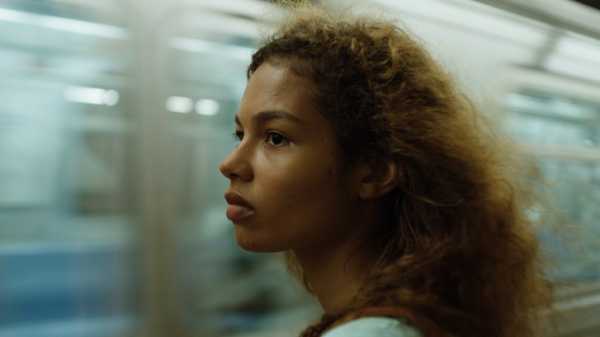
Photograph by Ashley Connor / Oscilloscope Laboratories
“Madeline’s Madeline” (Josephine Decker)
A furious, visionary drama of an outer-borough teen-age girl (Helena Howard), whose conflicts with her mother (Miranda July) are offset by her uneasy bond with a theatre director (Molly Parker).
“Let the Sunshine In” (Claire Denis)
Juliette Binoche stars in the French director’s film about a middle-aged woman’s romantic adventures, which refracts personal experience in the form of a modernistic screwball comedy.
“Zama” (Lucrecia Martel)
The bureaucratic and intimate frustrations of a Spanish magistrate in a remote Argentine outpost in the eighteenth century inspire rarefied passions and a highly original style to match.
“Did You Wonder Who Fired the Gun?” (Travis Wilkerson)
This first-person documentary is a bitterly revelatory work of history, a monstrous family story, and an unflinching view of current politics.
“Sorry to Bother You” (Boots Riley)
A comedic outburst of political imagination and visionary fury, centered on a young Oakland telemarketer (Lakeith Stanfield) whose job conceals grand schemes of grotesque evil.
“BlacKkKlansman” (Spike Lee)
This drama, based on the true story of two police officers in Colorado Springs who infiltrated the Ku Klux Klan, is among Lee’s most politically passionate films.
“Werewolf” (Ashley McKenzie)
With ferociously intimate images, tensely controlled performances, and a spare sense of drama, this début feature, about two young drug addicts in Nova Scotia, conjures a state of heightened consciousness.
“Mrs. Hyde” (Serge Bozon)
This giddily imaginative reworking of Robert Louis Stevenson’s classic tale stars Isabelle Huppert as a science teacher whose identity is changed, along with her teaching style, when she becomes a subject of her own experiment.
“The Old Man & the Gun” (David Lowery)
Robert Redford delivers a glorious, sly performance in a movie that masks its idiosyncrasy in brisk and breezy storytelling.
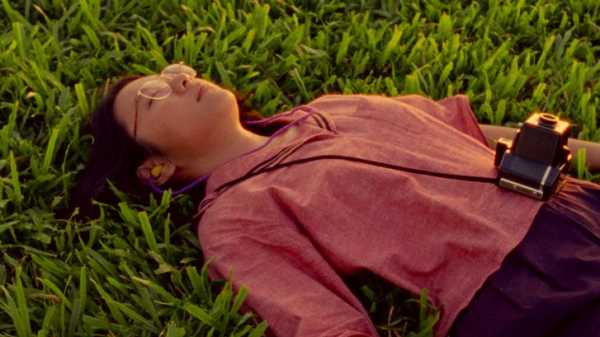
Photograph from Netflix / Everett
“Shirkers” (Sandi Tan)
This energetic and insightful first-person documentary is centered on the efforts of teen-agers in Singapore in the early nineteen-nineties to make a madly ambitious independent film.
“Jeannette: The Childhood of Joan of Arc” (Bruno Dumont)
A portrayal of Joan of Arc’s childhood as a starkly inventive, ecstatically energetic rock opera, filmed on location in raw and rustic landscapes.
“Claire’s Camera” (Hong Sang-soo)
The South Korean director condenses a grand melodrama of work, love, and art into a brisk roundelay of chance meetings and intimate confrontations, set amid the Cannes Film Festival; Isabelle Huppert stars.
“Infinite Football” (Corneliu Porumboiu)
This warmly comedic yet calmly analytical documentary, about a Romanian bureaucrat who wants to change the rules of soccer, subtly confronts the country’s political history.
“Monrovia, Indiana” (Frederick Wiseman)
In this documentary, his forty-fourth feature, Wiseman visits a small Midwestern town where the winds of change meet the chill of death.
“Support the Girls” (Andrew Bujalski)
An exuberant yet intricate comedy-drama, set behind the scenes of a Texas sports bar and starring Regina Hall as its compassionate and all-seeing manager.
“Sollers Point” (Matt Porterfield)
The title of this drama refers to a Baltimore neighborhood where a young man (McCaul Lombardi) is threatened by white supremacists he knew while he was in prison.
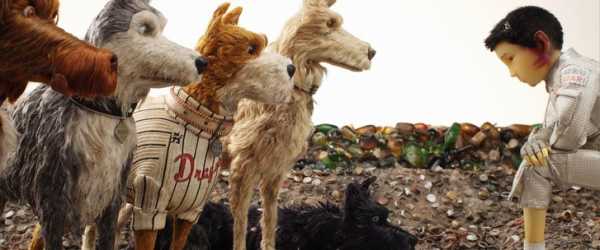
Photograph from Fox Searchlight / Everett
“Isle of Dogs” (Wes Anderson)
This stop-motion animated comedy, about children’s efforts to thwart the extermination of dogs, is Anderson’s third film in a virtual trilogy of revolt.
“Golden Exits” (Alex Ross Perry)
Life and work stressfully intersect in this taut, intimate melodrama of families and friends in the comfortable confines of Cobble Hill.
“Can You Ever Forgive Me?” (Marielle Heller)
Melissa McCarthy brings passion and poignancy to the role of the real-life Lee Israel, a biographer who, in financial distress, convincingly fabricates letters in the names (and voices) of famous writers and sells them.
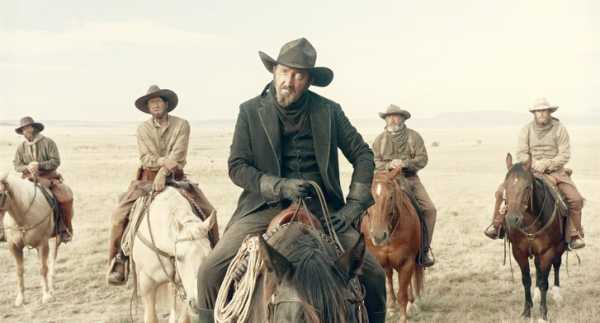
Photograph from Netflix / Everett
“The Ballad of Buster Scruggs” (Joel Coen and Ethan Coen)
A six-part Western anthology, centered upon a common theme: the Wild West’s relentless cruelty, wanton violence, deadly recklessness, and cavalier abuses of unchecked power.
“I Am Not a Witch” (Rungano Nyoni)
In this derisive and empathetic drama, a quiet eight-year-old Zambian girl is accused by her fellow-villagers of being a witch, and is sent to an encampment of witches.
“A Bread Factory” (Patrick Wang)
Tyne Daly stars as the founder of a performing-arts space in a small New England town that is threatened with a takeover by celebrity artists with Hollywood connections.
“The 15:17 to Paris” (Clint Eastwood)
A drama of gonzo casting, in which the three young American men who thwarted a terrorist attack aboard a train in France, in 2015, play themselves.
“The Rest I Make Up” (Michelle Memran)
An intimate documentary portrait of the playwright María Irene Fornés, whose bouts of memory loss prove to be the onset of Alzheimer’s disease.
“If Beale Street Could Talk” (Barry Jenkins)
A virtual essay on the crushing legal mechanisms of racism and a first-person vision of the enduring force of history are interwoven with a piercingly romantic dramatic adaptation of James Baldwin’s novel.
“Bisbee ’17” (Robert Greene)
This documentary, about the violent repression of a 1917 strike in the copper-mining town of Bisbee, Arizona, is also a work of fiction in the conditional tense, featuring local residents in a reënactment of the historical events.
“First Reformed” (Paul Schrader)
Ethan Hawke plays an angry and bitter minister in a small and historic upstate New York church, who directs much of his bitterness at political leaders and much of it at himself.
“Gavagai” (Rob Tregenza)
A visually virtuosic ghost story, set in Norway, about grief, poetry, landscape, and emotional recovery.
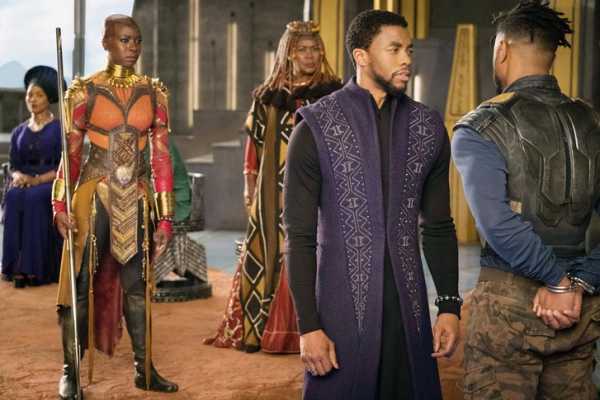
Photograph by Matt Kennedy / Walt Disney Studios Motion Pictures / Everett
“Black Panther” (Ryan Coogler)
A grandly mythical superhero drama that confronts modern political agonies in complex and resonant ways.
“Hale County This Morning, This Evening” (RaMell Ross)
A virtually handmade, photographically inspired documentary about young adults living in small towns in western Alabama.
“Minding the Gap” (Bing Liu)
A former teen skater in Rockford, Illinois, returns home to make a documentary about his longtime friends’ current lives and reveals harsh truths about their past and his own.
“Notes on an Appearance” (Ricky D’Ambrose)
This exquisitely stylized drama is set in New York, in the present day, but it’s redolent of the tones, moods, and conflicts of earlier times—of a hothouse intellectual city and its enduring mythology.
“The Other Side of Everything” (Mila Turajlić)
A documentary about Srbijanka Turajlić, a Serbian opponent of Slobodan Milošević’s repressive and genocidal post-Yugoslav regime, directed by her daughter and centered on the political history of the family’s home.
“The Spy Who Dumped Me” (Susanna Fogel)
The familiar plot of this action comedy, starring Mila Kunis and Kate McKinnon, is adorned with piquantly loopy, extravagant, and off-kilter details.
“Scarred Hearts” (Radu Jude)
A fanatically detailed, intellectually furious drama, set in Romania, in 1937, about a young Jewish writer trapped between disease and Fascism.
“Pow Wow” (Robinson Devor)
This documentary, about residents of the Coachella Valley and its history, offers as much cinematic style as it does investigative content.
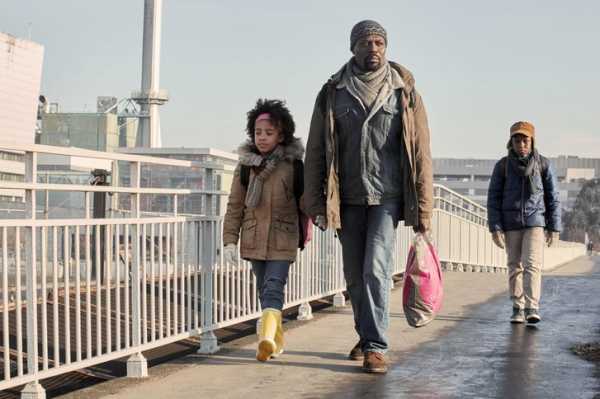
Photograph from Alamy
“A Season in France” (Mahamat-Saleh Haroun)
The Chadian director dramatizes the bureaucratic sword of Damocles that is hanging over the heads of a family of migrants from the Central African Republic who are living in Paris.
“Garry Winogrand: All Things Are Photographable” (Sasha Waters Freyer)
A documentary about the photographer, featuring audio recordings and also film clips of him at work.
“The Hate U Give” (George Tillman, Jr.)
This adaptation of a young-adult novel is the story of a black family living in a predominantly black Georgia neighborhood and confronting legally enforced and socially reinforced norms of racism.
“The Waldheim Waltz” (Ruth Beckermann)
A documentary about the Austrian Presidential elections of 1986, composed entirely of archival footage (including sequences filmed by the director, who was involved in protests at the time).
Sourse: newyorker.com


